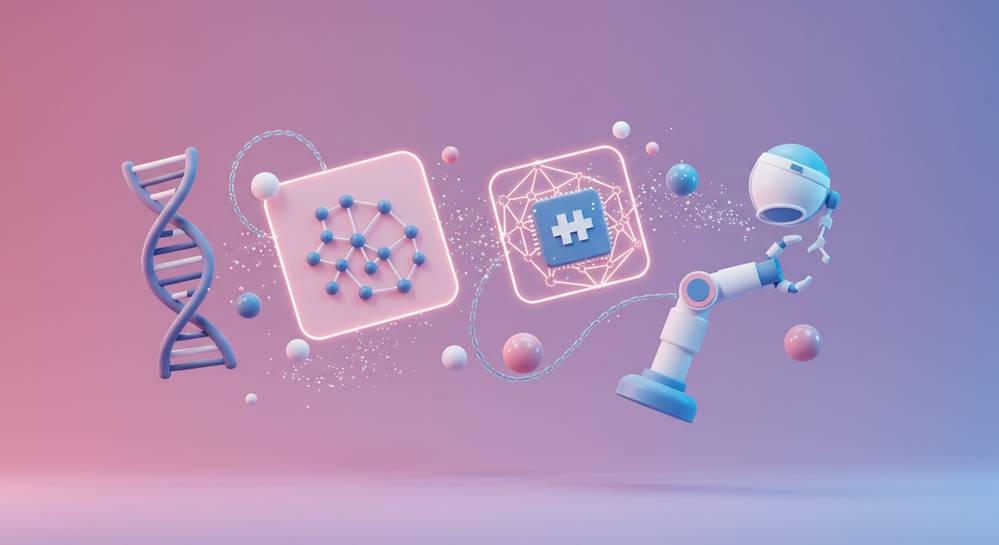The world of medicine is constantly evolving driven by relentless research and innovation. The latest hospital medical breakthroughs news reveals a future where diseases are treated with unprecedented precision. From advanced diagnostics powered by artificial intelligence to revolutionary gene therapies these advancements are not just theoretical concepts; they are actively reshaping patient care in hospitals around the globe providing new hope and improved outcomes for millions.
What defines a medical breakthrough in a hospital setting
A true medical breakthrough is more than an incremental improvement; it is a fundamental shift that redefines the standards of care. Within a hospital, these advancements solve previously insurmountable challenges. The latest hospital medical breakthroughs news focuses on tangible patient outcomes, not just scientific papers. An innovation must meet several core criteria to be considered a genuine leap forward. These developments represent a new clinical reality.
Key benchmarks of a medical breakthrough
The impact of an innovation is measured by its ability to dramatically alter the course of medicine. For any development to be classified as a breakthrough, it must satisfy specific, high-impact benchmarks that are recognized across the healthcare industry.
- Radical Patient Outcome Improvement: The innovation must deliver substantially better results than existing treatments. This includes drastically higher survival rates, significantly shorter recovery times, or turning a chronic illness into a manageable condition.
- Introduction of a New Care Paradigm: It often establishes an entirely new method for treating disease. A key example is using the body’s own immune system to fight cancer, moving beyond traditional chemotherapy.
- Revolutionized Diagnostic Capabilities: It provides tools for detecting diseases far earlier and with greater precision. This allows for timely interventions, often before symptoms even manifest, which is critical for effective treatment.
These elements separate minor progress from truly transformative healthcare technology. Patients seeking these advanced treatments often need to find a hospital that specializes in a specific condition where such innovations are developed and implemented.
Key areas of recent medical advancements

The landscape of medical innovation is rapidly evolving. Hospitals are now hubs for next-generation technologies that revolutionize diagnosis and treatment. These are not distant concepts but current applications creating real-world impact. The latest hospital medical breakthroughs news highlights several key fields where progress is most profound. These advancements are reshaping patient care today.
Artificial intelligence in diagnostics
AI algorithms now analyze medical images like X-rays and CT scans with accuracy that can surpass human specialists. This technology identifies subtle signs of disease, such as early-stage tumors, much faster than traditional methods. By ensuring the undefined are followed, these tools support doctors, allowing for quicker treatment decisions and saving valuable time.
CRISPR gene editing applications
The revolutionary CRISPR technology is transitioning from labs to clinical trials in hospitals. It offers the potential to correct genetic defects at their source. Promising results are emerging for inherited disorders like sickle cell anemia. This technology points toward a future of one-time cures instead of lifelong disease management.
Personalized medicine and immunotherapy
Personalized medicine tailors treatment to an individual’s genetic profile, moving away from one-size-fits-all solutions. In oncology, CAR T-cell therapy is a prime example. It re-engineers a patient’s own immune cells to target and destroy cancer. This offers new hope for those with treatment-resistant cancers.
The journey from research to patient care in hospitals

A new treatment travels a long, rigorous road before it can be used in a hospital. This process ensures every breakthrough is safe and effective for patients. This multi-stage journey is governed by strict regulatory oversight, turning concepts into the hospital medical breakthroughs news we see today. Each step is essential for validating an innovation before it reaches the public.
The path from a laboratory idea to a bedside treatment involves several distinct, mandatory phases:
- Basic and Translational Research: It starts in the lab where scientists study diseases at a molecular level. They work to identify potential targets for new therapies.
- Preclinical Testing: Promising discoveries are then tested in non-human models. This step evaluates initial safety and efficacy before any human trials can begin.
- Clinical Trials: This phase involves human volunteers across three main stages. Each stage answers vital questions about a treatment’s safety, dosage, and effectiveness against current standards.
- Regulatory Approval: After successful trials, bodies like the Food and Drug Administration (FDA) review all data. They then decide if the treatment is approved for public use.
Only after clearing all these hurdles can a breakthrough be integrated into hospital practice.
The future outlook on hospital innovations

While today’s breakthroughs are already transforming lives, the pipeline of innovation shows no signs of slowing. The convergence of biology, technology, and data science is setting the stage for the next wave of medical advancements. These developments will further redefine hospital care. The focus is shifting towards proactive, predictive, and personalized health solutions, which will dominate future hospital medical breakthroughs news.
Nanomedicine and targeted drug delivery
Researchers are developing nanoparticles capable of delivering powerful drugs directly to diseased cells. This approach can target cancer tumors while leaving healthy tissue unharmed. The method minimizes side effects and maximizes treatment efficacy, representing a significant leap in precision medicine.
Bioprinting of tissues and organs
The prospect of 3D printing human tissues and eventually entire organs could solve the critical shortage of donors. While still in early stages, this technology is progressing rapidly. Bioprinted skin grafts and cartilage are already being tested, paving the way for more complex organ structures in the near future.
Advanced telehealth and remote monitoring
The integration of sophisticated sensors and wearable technology with telehealth platforms will continue to expand. This allows hospitals to monitor patients with chronic conditions remotely. Access to real time data enables preemptive care, helping to prevent critical health events before they occur.
The landscape of healthcare is being continuously redrawn by remarkable hospital medical breakthroughs. These innovations promise a future with more effective personalized and accessible treatments for all. Staying informed is crucial to understanding the potential of modern medicine. For the latest updates and in-depth analysis on health and science follow News Explorer Today.